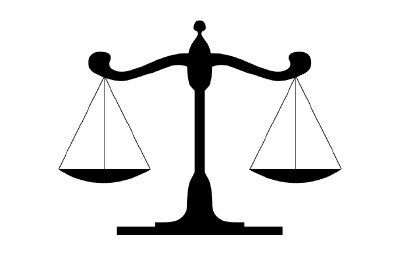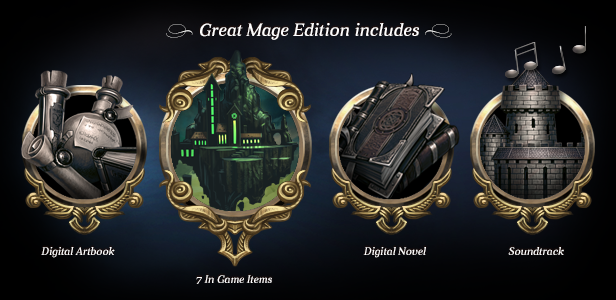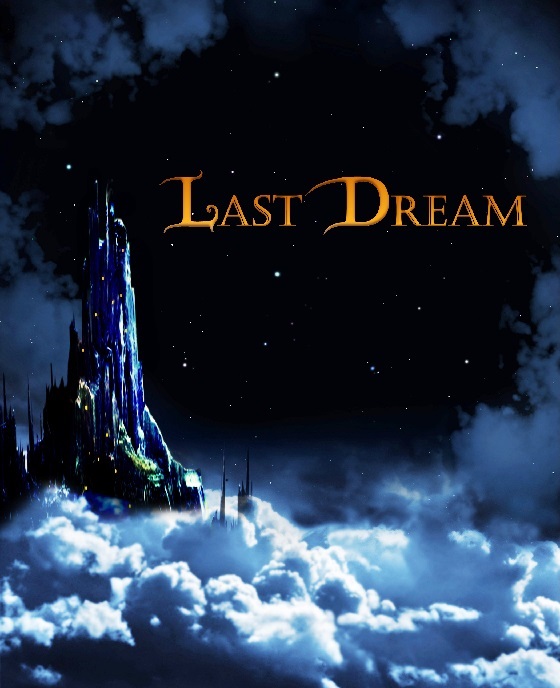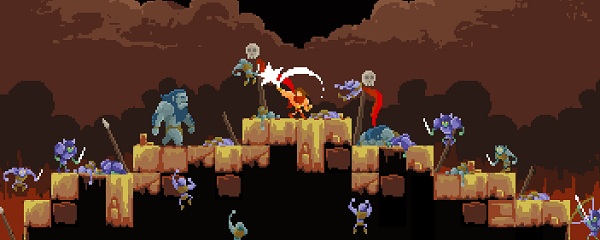Alright. Let's be honest, I am not a game developer, I
am not a PR guy, I am not an analyst.
What I am is a gamer. And as a
gamer, I wanted to just give a few ideas to the community as a whole, the indie
gaming community, that, from a gamer's perspective, will actually help
you. Because, corporations may need
advice, but they won't take it. Indie
devs tend to just be a group of a few people and they can and sometimes will
use advice, so...here it is.
| Considering the shit AAA devs are doing...yeah, I love Indie |
I've been
seeing a lot of...shall we say, shady behavior on the indie scene, lately. For every War Z or Guise of the Wolf, we get
tons of decent games like Shovel Knight or Cubesis, certainly, but the fact
that people think they can screw with their customers, on the indie level no
less, is kinda disconcerting. This
doesn't just go for people trying to mess with critiques or lie to others, this
goes for blow ups like with Phil Fish or even levels of mediocrity, like the
dozens of RPG maker games that are starting to appear on steam. So, let's start with some easy tips.
1) A New Developer Starts with nothing.
As a new
developer, you start with zero. Zero
faith, zero goodwill, but also zero bad will and zero vitriol. You can build your image from the ground
up. So, play to the audience you want
and respect that audience. You can make
a name that is meant to show your ambitions or what have you, like Wayforward
or you can just have it sound cool, like Super Giant Games. But, you start on an even keel, so use that
to your advantage. Use it as a jumping off
point to show your audience, you respect them and you care. They WILL start to judge you from the first
screen shot you post, but when all you have is a name and a title, you start
with nothing, so use that to your advantage.
 |
| All developers are born with neither good will nor bad will. Use that to your advantage. |
2) The Value of Goodwill.
Indie
developers can live and die on goodwill.
See, many indie developers work their jobs part time while doing other
jobs or can survive on other means while waiting to hit it big. However, if they do hit it big, this means
they can work full time. Indie devs are
no different from big companies in this regard, as if their name has weight it
can mean the difference between a boycott and massive sales. Even if it just means you get a few hundred
extra sales, since you try and deliver games cheaply and without much overhead,
like a publisher or retailers cut, it can still help.
| If you give to gamers, gamers will give to you, devs. |
3) Be courteous, but don't be phony.
Your
customers need to trust you and be willing to return your own goodwill,
spreading word of mouth, doing reviews, talking to friends, what have you. So, how can you build goodwill? Well, a good way to start is to think about
how you as a customer want to be treated.
Everyone hates that sir or ma'am crap we get when talking to corporate
pawns like the cable company or healthcare and we hate automated systems even
more. We want to be spoken with as
equals, by real people. We want to be
spoken to as people who are helping with the gaming experience, not lavished
with false praise and titles. If we make
a suggestion, be glad for it. Even if
you can't use it, remember that someone cared enough that they wanted the game
to be better so they could play it more.
 |
| We all hate automated machines telling us our time is valuable to them. Treat us courteously, but not like robots. |
4) Be a nice person.
In spite of
all vitriol, nothing builds goodwill like a developer who will act in a mature
way when being insulted or demeaned.
This. Is. HARD.
Phil Fish may not be a guy I like, but he was insulted on a daily basis
and demeaned the point he quit the game industry after many, MANY choice
words. It's probably good he did because
after those words...he lost a LOT of good will
from fans. Thing is, Zeboyd put it
best. It's just good for all of us if we
try and be nice guys. Not fake nice, but
if someone disagrees with you, let them, don't explode. If they're being an asshole to you, ignore
them. If they're being an asshole to
your community, feel free to ban them, since you have your community to think
of. But in general, just be a nice guy
that people feel they can talk to.
 |
| Gamers can be a vitriolic bunch but indie devs rely on them so...you kinda have to be the bigger man here. Act maturely, even if we don't. |
5) Man up to your mistakes.
All
developers have made mistakes, wasted money, or generally had delays that
prevent them from keeping promises in a timely manner. Lying or making excuses to your fans and
customers is not the way out. Be upfront
with them and share the experience. If
you're having problems, let them know but assure them of your commitment. If you can't deliver, all there is to do is
apologize, take the heat, and try to make it right how you can. While you might lose some goodwill for doing
the right thing, people remember those who are honest with them and respectful. They respect those who don't cut and run and
will try and do the right thing. That,
in turn, will get you more good will.
 |
| People might never let you forget a mistake, but if you own up to them, don't make excuses, and say you'll do better, they're more likely to forgive and respect you. |
6) Share with and go the extra mile for your community.
Everyone
loves seeing games progress, either in development or in updates and bug
fixes. Share with them how things are
going, maybe if you added something new, secrets maybe, but keep them involved,
because that shows you care.
These are basic tips relating to good will. In general, just think how you as a gamer or
a customer want to be treated by others and...do that.
 |
| Community is a powerful tool in the game industry. Treat them right. |
7) Do not lie to your customers
This is to
cover all bases. We talked about manning
up to mistakes or problems, but don't sugar coat things. If your game is a piece of ass, at least let
them know going in that it's a piece of ass and that you are trying to learn to
either fix it or do better the next time.
Don't bill it as a Call of Duty killer and then it turns out to be a
generic shooter with copy paste graphics from the Unreal Engine with no trace
of originality. Don't use misleading
clips or CGI or in general try and deceive them, because you will be found out
and your attempts to hide it WILL be catalogued. In the age of screen capture and mass media,
nothing can just be covered up anymore.
You cannot cover up a lie in the games industry, so it's better to simply
not lie. Your rep and your goodwill will
thank you.
 |
| If you lie, your customers will find out...and they will be PISSED. |
8) Do not censor
I know it
may hurt to see something you worked hard on or which isn't finished take a
verbal pounding from players who are basically ripping it apart for fun, but
like I said before, if you try and cover that up and lie, it WILL be found
out. Garry's incident and Guise of the
Wolf are the most notorious cases of censorship gone bad when Total Biscuit had
his first impression videos taken down by people abusing the Youtube Copyright
system. He tore them apart in a mature
manner, showing their wrongs in detail, catalogued, and eventually they had to
relent. Jim Sterling also covered those
who took down steam reviews that were unflattering. All incidents left a trail and the stories
were picked up by Kotaku and other news outlets and the developers were treated
as the scummy, money grubbing asses they were.
Don't censor. It never ends well. Take the vitriol on the cheek, turn the other
cheek, and let it be forgotten, making way for fans who WILL appreciate your
game. Everyone hates a villain and if
you act villainously, like trying to abuse the system to censor bad press, you
will be slain by some righteous heroes of the net.
9) Don't belittle and don't fear comparison
Not everything
has to be original, but don't be afraid to have something compared to your game
and don't belittle others who might be compared to it. Many people hated the calling of Terraria a
"2-d Minecraft." Sure, they
are different, but that kind of comparison...is not bad. Minecraft is a big hit and a game like
it? That's not saying a bad thing, you
could be compared to worse. And Terraria
never set off to compete with Minecraft, they didn't claim they were
better. They were just different. They didn't speak ill of them. This is good.
I remember playing The Last Dream for Steam and didn't much care for it
because it took too much of the original Final Fantasy and not enough of the
sequels, with a bland class based system and not enough interesting story or
music. However, think about that
sentence I just said. Took too much from
the original Final Fantasy. Final
Fantasy purists, who enjoyed the original NES games will eat a game like that
up. Don't fear comparison. It's just someone else's way of pitching your
game to a friend in a nutshell. Don't
belittle because whether or not someone who is making a game similar to yours
is better, the fact that you treat them with the same respect you treat your
customers, that is to say a lot, will earn you a fair bit of goodwill and
possibly partners in the future. Who
knows? They may want to work for the
masters for their sequel.
| Comparison isn't necessarily a bad thing. Don't fear it, because it's just part of how people associate your game. |
10) Don't nickel and dime your customers
I see this
happen a fair bit. I'm not of the mind
that all micro transactions are bad.
Some DLC definitely deserves the money, like Dark Souls 2's Sunken Crown
DLC. It clearly took extra time to make
and was not part of the original product.
However, a game like Warlock 2, which looks like it should have been an
expansion pack sold as a full retail release?
It makes customers raise an eyebrow and hurts your brand. We don't like to feel like content is
withheld from us. Held hostage from
us. If you want to offer certain extras
you can't get elsewhere, like behind the scenes footage or art books, maybe,
but if you are withholding characters, music, whole levels even, BEFORE the
game has even launched? You are going to
anger a lot of people. Some DLC, we are
okay with, but when it's been cut out of the finished product to make more
money? Many of us will skip the finished
product entirely, since it's being sold to us piecemeal.
 |
| When your customers realize you hacked out in game items to sell a more expensive edition, they may just say to hell with your game. It shows a lack of disrespect. |
11) Spread the word, but don't bribe
Disclosure
has become a hot topic lately with youtubers.
It's the idea that a game developer is offering special goodies or money
or deals to reviewers for a favorable look at their game. This is a bad idea. Why?
Because if you don't have enough faith in your game for it to stand on
its own, you probably shouldn't be selling it.
Don't bribe reviewers, don't even try to sweeten a deal. Just advertise that you have something cool
to show people. Spread the word through
the medias and the fans, but don't try and buy publicity. Market, but don't try and get "special
attention."
 |
| Full disclosure, not non disclosure. Don't bribe, don't lie, don't keep things from your customers. |
12) Don't panic
Even good
games can receive bad reviews. Why? Because the game wasn't what that particular
player wanted to experience, even if the videos and screenshots seemed like it
might be. And that's okay. Sometimes, wires cross. But if you are proud enough of your game that
you would play and enjoy it, then others will too. Don't panic if you get a bad review or if
something happens to derail spreading the word or getting it to your
customers. In the end, most players will
remember how you act and resolve issues as well as how they like the game. I may not like FTL, but I give mad props to
the developers for improving it and offering the updates for free. I might buy another game from them, if it were
released. Whatever happens, just go with
the flow and do your best to deliver your product to your customer. If they like it, they like it, if they don't,
they don't, but someone will like it.
Have faith in that.
 |
| This isn't my kind of game, but it is for someone. Just cause I don't like it doesn't mean others won't. Don't panic. Keep calm and carry on. |
It's a
little sad that the indie scene has been sullied by some developers who try and
lie or abuse the system to their own benefit, but for every Guise of the Wolf
or Garry's Incident, we get a dozen Shovel Knights, Valdis Story, Sang-Froid,
Tiny Barbarian DX, etc. It's easy to
misstep as an indie developer, sure, but from a gamer's standpoint, these
points above are what matter to us of the developers we trust. Something to keep in mind for the aspiring
game developers. And something for games
to keep in mind when picking a title on name value alone.
In the end, being a good developer and being a decent human being aren't mutually exclusive. That is the best bit of advice I can offer.
In the end, being a good developer and being a decent human being aren't mutually exclusive. That is the best bit of advice I can offer.









